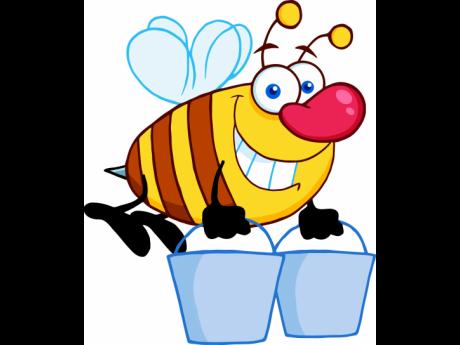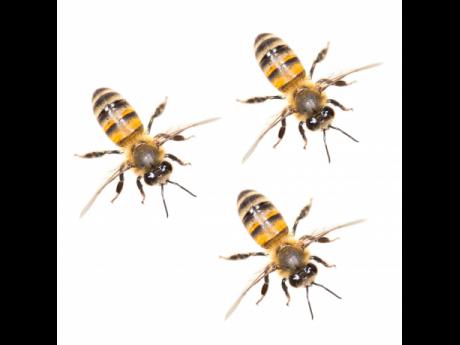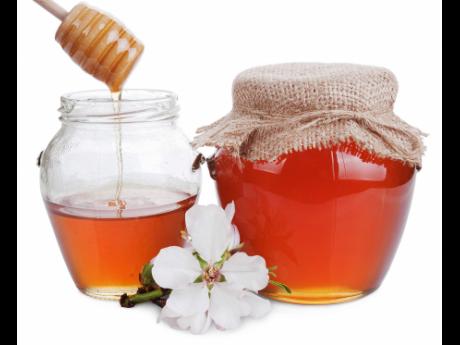An Ounce of Prevention: The Honey Bee - a sweet healer
Honey, the main product of the honey bee, is composed primarily of sugars and water, along with small amounts of vitamins and minerals, including niacin, riboflavin, pantothenic acid, calcium, copper, iron, magnesium, manganese, phosphorus, potassium, and zinc.
On average, honey is 17.1 per cent water; 82.4 per cent total carbohydrate; and 0.5 per cent proteins, amino acids, vitamins and minerals. The main sugars are fructose, glucose, maltose, and sucrose.
Honey also contains a variety of antioxidants that neutralise free radicals and, generally, darker honeys have higher antioxidant content than lighter honeys. Because honey contains so many nutrients that are lacking in refined table sugar, it is a much healthier sweetener.
Honey as an antibiotic
Another important property of honey is its antibiotic action. It has even been shown to be superior to some conventional antibiotics in treating certain infections. Experiments with honey show that its bacteria-destroying properties doubled when diluted with water. Interestingly, newly born bees are nourished with diluted honey by the nurse bees responsible for their care as if they know this feature of the honey.
Honey is valuable in treating burns, infected wounds, and ulcers. A study in West Africa showed that many surgeries like skin grafting, surgical debridement, and even amputation were avoided by local application of honey to wounds.
Honey for coughs and colds
Honey has been used as a home remedy for centuries to help alleviate some of the symptoms associated with a common cold. Researchers from Penn State College of Medicine have published a study comparing honey to over-the-counter medicines for relief of cold symptoms such as a cough. In several instances, honey outperformed the modern drugs.
Honey and digestion
Honey has traditionally also been used for heartburn and stomach ulcers. In fact, Western research now indicates that honey may halt the growth of H. pylori, the bacteria responsible for many cases of gastritis and stomach ulcers.
Bifidobacteria are a group of 'good' bacteria considered important to the health of the digestive tract. Honey acts as a probiotic to promote the growth of the bifidobacteria and heal the stomach. It can even help counteract constipation. Drink 12 oz. of lukewarm water with one tablespoon of honey in the morning on an empty stomach.
Healthy teeth
Although honey is sweet, it helps to maintain and protect teeth. It shows antimicrobial effects against several species of dental plaque bacteria. Honey has been proven to sharply reduce acid production, while killing the bacteria responsible for dental caries and blocking the growth of oral bacteria. Honey holds promise for the treatment of periodontal disease, mouth ulcers, and other diseases of the mouth.
Honey for insomnia
Honey helps in nervous disorders like insomnia and acts as a tonic in recovery of any damage to the human nervous system. In cases of sleeplessness, one should drink a teaspoon full of honey mixed in lukewarm water at bedtime to help in improving sleep.
Royal jelly
Royal jelly is a nutritional powerhouse. Nurse bees aged between six to 14 days old produce this 'milk' called royal jelly exclusively for the queen and her larvae. The queen feeds only on fresh royal jelly. The larvae that consume fresh royal jelly in the first 72 two hours of their life become queens, and those that do not, become worker bees. Worker bees live five to six weeks, whereas the queen lives-five to six years.
Royal jelly is rich in vitamins and collagen a protein that we lose as we get older. In Asia, royal jelly is valued as a powerful longevity tonic and used to stimulate immunity, vitality, and virility. Royal jelly is available in supplement form from health-food stores.
Allergies
It is not really known why direct exposure to pollens causes allergic hay fever in some people, whereas small doses of honey do the exact opposite. Experts think that the very tiny quantity of pollen in the honey acts as a homeopathic medicine. One teaspoon of unfiltered and unprocessed honey daily can do wonders for allergies.
The more local the honey, the better the benefits against allergies as the local honey will contain those pollens to which you are allergic.
Bee venom therapy
Bee venom therapy involves applying the actual honeybee to the skin of the patient and allowing it to inject its venom by stinging. It is claimed to be useful in arthritis, bursitis, tendinitis, keloids, shingles, and other painful conditions.
The most abundant active component of the venom is melittin, which has a powerful anti-inflammatory action. In addition, bee venom contains a variety of peptides and proteins, with powerful effects on the nerve endings and the immune response.
Bee pollen and propolis
Bee pollen, rich in vitamins, minerals, enzymes, and amino acids give your energy and vitality a boost. It also protects the liver from toxins and benefits men with enlarged prostates.
Propolis is a resin that's secreted by the bees to repair their hive, and it acts as a protective layer against invading bacteria and other organisms. Propolis stimulates immune functions with its antioxidant and anti-inflammatory properties. It also contains antibacterial, antiviral, and antifungal agents.
Cautions
Honey is twice as sweet as sugar and has a very high glycemic load. Individuals with blood sugar disorders like diabetes and hypoglycaemia should avoid taking large amounts of honey.
The US-based National Honey Board has warned that honey may contain spores that can cause a bad infection if given to children less than one year of age. Adults and older children are routinely exposed to those spores in dust, soil, honey, and other uncooked foods but are almost never affected by them. In immature infants, however, the spores are able to germinate and cause illness.
- You may email Dr Vendryes at tonyvendryes@gmail.com or listen to An Ounce of Prevention on POWER106FM on Fridays at 8:15 p.m. Details of his books and articles are available on his website: www.tonyvendryes.com.



